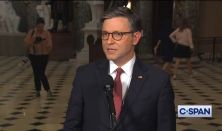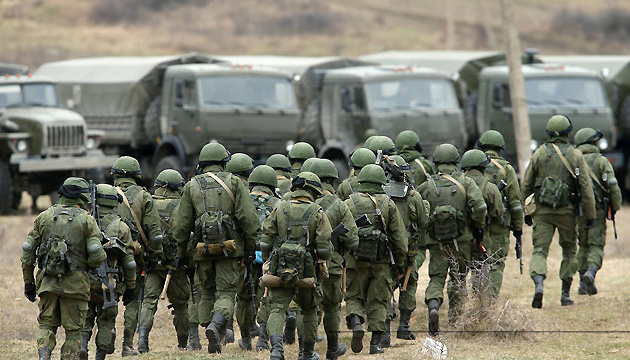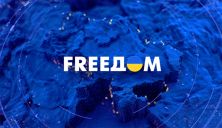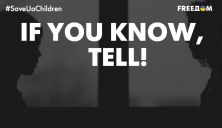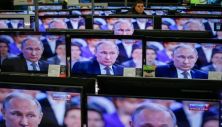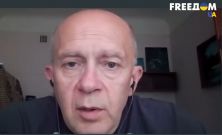The situation on the Ukrainian-Russian border was discussed by the United States Secretary of State Anthony Blinken and the head of European diplomacy Josep Borrell. Ukraine’s partners and military experts assess it differently.
Writes about it UA.
The New York Times published a map of the location of Russian troops on the border with Ukraine: Ukrainian territory is surrounded on three sides. This may indicate preparation for an offensive in new points, including in the direction of Kiev, – the newspaper writes. US Secretary of State Anthony Blinken also warned about possible provocations by the Kremlin to justify the invasion of Ukraine.
“No one should be surprised if Russia arranges a provocation or incident and then tries to use it to justify a military intervention – in the hope that by the time the world realizes that there was a catch, it will be too late. The idea that Ukraine is the aggressor in this situation is absurd. The aggressor is the Russian Federation, which invaded Ukraine almost eight years ago” – he said.
Military experts say that despite clear signals from the West, Russia is still preparing for a full-scale invasion of Ukraine. This is evidenced by the nature of the location and strengthening of positions. And also the huge resources that have been spent on this.
“We keep track of funds. Russia spends a huge amount of money to pull these troops to the border, to build positions there, to provide for these soldiers. It becomes very expensive: you need food, water, fuel. Regardless of how it all ended, preparations were made for a real invasion. If the Russian Federation just wanted to “put pressure” on the US, NATO or Ukraine, it would not need so many troops, it would not invest so much in this operation, “said retired British army colonel, security and defense expert Glen Grant.
At the same time, the Kremlin will not stop with Ukraine, experts say. After all, Russia’s goal is to constantly expand its influence without stopping its aggressive policy against its neighbors.
“They took the restoration of the empire as the basis of a certain national idea. In another way, the modern Russian elite, the current government of the Kremlin, does not at all see the possibility of the development of the Russian state. Everyone who is on the perimeter of the Russian Federation, all the states that were once occupied by Russia, were part of the Soviet Union or even part of the socialist bloc, they are in a potential risk zone, ”explained Yuri Kochevenko, director of the International Center for Countering Russian Propaganda.
The EU, NATO countries and the United States are aware of the threat of expanding Russian aggression – if not open, then hybrid. Therefore, Ukraine’s western partners have taken a principled position, threatening with harsh sanctions in the event of an aggravation of the conflict. As early as January 10, Geneva will host the bulk of the negotiations between the United States and the Russian Federation, and a Russia-NATO Council summit is scheduled for January 12. Although the official topics of the talks do not directly concern Ukraine, they are aimed at clarifying the security situation in the region.
“They will talk exclusively about strategic security issues. This refers to nuclear weapons. The next point is transparency in military matters, including in the aspect of military exercises. Russia says it is allegedly conducting exercises on our border. In fact, it is rather difficult to discern whether this is an exercise or preparation for an invasion, ”said Alexander Khara, diplomat, foreign policy and security expert at the Center for Defense Strategies.
In addition, a Russia-OSCE meeting will take place on 13 January. Its main theme is Ukraine. However, experts warn: according to the results of the negotiations, one can expect, including an escalation of aggression on the part of the Russian Federation, in response to the West’s refusal to comply with the unacceptable conditions of the Kremlin.
As you know, from 10 to 13 January, a number of events related to security and peace will be held in Europe. So, on January 10, a bilateral strategic stability dialogue (SSD) between the United States and Russia will take place in Geneva, and a meeting of the NATO-Ukraine commission will take place in Brussels. On January 11-12, the US delegation will hold consultations with the NATO leadership, NATO allies and EU officials on European security issues in the context of Russia’s aggression against Ukraine. On January 11, the US delegation will meet with EU officials and, together with allies, prepare for the Russia-NATO Council meeting. On January 12, a meeting of the Russia-NATO Council will take place in Brussels. On January 13, a meeting of the OSCE Permanent Council will take place in Vienna.
Read also: Russia’s Military Escalation Against Ukraine (LIVE UPDATES)
